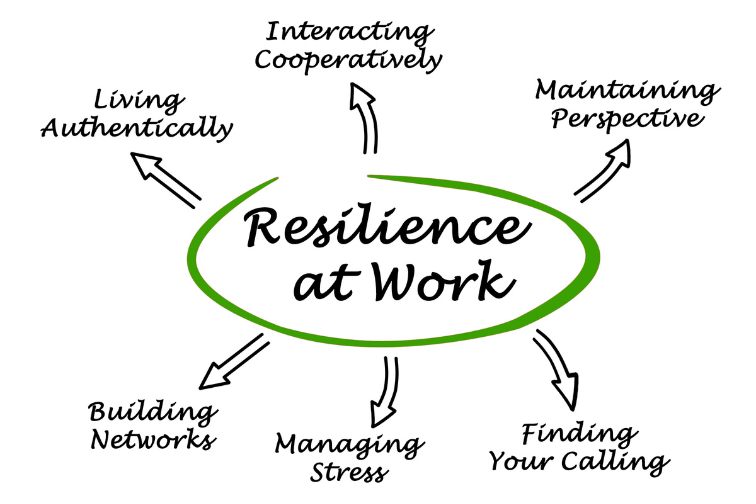Resilience: An Empowering Skill for Leaders and Employees
It was a year ago…
We traveled basically wherever the roads (and money in our pockets) took us.
We shook hands, embraced, and hugged our friends and family (especially elderly parents or grandparents).
We saw other people smile.
At work, we gathered around coffee machines to discuss our days and our colleagues.
We jumped in crowded buses, subways, and trains to meet friends for drinks, dinners, or movies.
We were envious of those who could work from home…
We thought it would all be over by summer.
We started wearing masks, keeping “social distance”…
And then we were told it is the “new normal”.
There is no such thing as the new normal. What we are experiencing now is a direct consequence of our actions before. So, we are the same people living in different circumstances. We are responsible for the old normal (not so great, either), as well as the predicaments we find ourselves in now. And probably for the foreseeable future too.
Whatever our reactions to this global mess might be (ranging from “life and business as usual” to caving in our homes and avoiding any human contact), it is mobilizing our most important survival resources.
One of the basic ones is – resilience.
What is resilience?
Resilience is our capacity to proactively and positively manage stress, shock, and challenges of life. It is about being able to quickly adapt to new circumstances and not give up in the face of adversity.
Difficult, for sure. Good news: it is a skill and can be learned.
Humans are social creatures and in the world defined by „social distancing“ we have to look for both proactive and practical strategies to maintain resilience and sustain business success.
How To Build Resilience At Work
Boosting resilience starts with support, both emotional (processing how we feel about something) and practical (advice, coaching, discussion to find a solution to our challenges).
In times of Zoom calls and Teams meetings, there are no quick chats in the corridor or five-minute exchanges at our colleague’s desk to gain additional perspective on a problem we are trying to solve. Our technologically driven communication lately is definitively more focused and task-oriented, but lacking personal connection.
However strange it might sound, the virtual world doesn’t have to be so depersonalized. We can use platforms to do short, five-minute check-in calls, send messages, and uplift quotes… It sounds simple, but the small connections accumulate and help people feel supported.

Resilience is also about confidence which is likely to get lost in the maze of the virtual world. The “hermit syndrome” massively contributes to that state since confidence is generally derived from our interactions in the real world: working in teams provides daily feedback on personal contributions; people see how their role is developing and can measure their influence on the team and organization as a whole. If levels of confidence drop, people lose their ability to respond to challenges or setbacks in their work and personal lives.
At this time of general uncertainty and volatility, leaders need to increase positive feedback and assurances to their people. In virtual interactions, we should pause to recognize small milestones and individual contributions, help our colleagues understand the value of their efforts, and show appreciation.
Resilience is about persistence. In the fast-paced world of the previous decades, we generally had the luxury of giving up when faced with bigger obstacles. The whole generation created values around flexibility which almost became paradoxical: if it lasted too long, if it wasn’t interesting enough, let’s move on.
The sight of the big picture and broader context became less important than the joy of novelty in work and life. Persistence became a thing of the past… In a double twist of fate, increased social distancing from work and personal communities also means it is easy to lose sight of the bigger picture. With uncertainty surrounding the impact of the pandemic, we continued focusing on short-term decisions and actions and for all the different reasons than before, losing the drive to persist when confronted with setbacks. In these strange circumstances, people tend to feel overwhelmed by the challenges they are facing or the uncertainty they need to navigate.
It is the role of leaders to remind people and teams of their organization’s enduring purpose and connect their current work to other teams repeatedly and systematically. A way to do it is to connect individual tasks and performances with long-term goals and to help them see how they are still contributing to the greater good.
Most importantly, resilience is about adapting. Finding our way in the new context and feeling enabled us to solve challenges we hadn’t faced before. To do that, we have to cultivate a “can do” attitude, a “win-win” way of thinking, and the mentality of abundance (a belief that there are enough resources and successes to share with others and more) in ourselves and the people around us.
Being resilient does not mean that we don’t experience stress, emotional upheaval, and suffering. Being resilient means that we become aware of it all, face it, stumble, and sometimes fall. It means brushing off the dust of disappointment, looking into the future with bright eyes, a clear mind, new experience, and strength gained through adversity.
And, as we already said, resilience can be learned. If you want to adopt this valuable skill in your organization contact our team to work on this.
Svetlana Mirkovic Borcic


 5 min read
5 min read